
This is the lesser-known symptom of Alzheimer’s that could affect drivers
As revealed by TV presenter Fiona Phillips this week, anxiety and brain fog could be symptoms of Alzheimer’s disease – but people are being warned of another lesser-known symptom that could affect drivers the most. It comes after the former breakfast TV host, 62, spoke publicly for the first time about her Alzheimer’s disease diagnosis, which she received 18 months ago. Phillips, who is currently taking part in a drug trial that is hoped could revolutionise treatment for the illness, said she wishes to end the stigma surrounding Alzheimer’s. According to the Alzheimer’s Association, one of the symptoms that could be related to the onset of the disease is trouble understanding visual images and spatial relationships. It said: “For some people, having vision problems is a sign of Alzheimer’s. This may lead to difficulty with balance or trouble reading. “They may also have problems judging distance and determining colour or contrast, causing issues with driving.” This is not the same as having vision problems or changes related to cataracts, which is a typical age-related change. Other early signs and symptoms highlighted by the organisation include memory loss that disrupts everyday activities, such as forgetting information that one only recently learned; experiencing challenges in planning or solving problems; having difficulty taking tasks that are usually familiar; and losing track of dates, seasons or the passage of time. People living with Alzheimer’s may also develop new problems with words in speaking or writing, and may have trouble following or joining a conversation. Misplacing objects and losing the ability to go over their steps to find something is also a common sign of early disease, as is poorer judgement and withdrawal from work or social activities. Phillips said she began to realise something was wrong when she developed “crippling anxiety” towards the end of 2021 and initially thought it was related to menopause. She was put on HRT to treat menopause symptoms, which led to some improvement, however, Phillips’ “brain fog remained”, her husband Martin Frizell said. After months of cognitive tests and a lumbar puncture to asses spinal fluid, Phillips was diagnosed with Alzheimer’s disease. She told The Mirror: “This disease has ravaged my family and now it has come for me. And all over the country there are people of all different ages whose lives are being affected by it – it’s heartbreaking. “I just hope I can help find a cure which might make things better for others in the future.” She is taking part in a medical trial at University College Hospital (UCH) for a drug called Miridesap, which is administered three times a day with tiny needles. Scientists hope the drug can slow or even reverse the disease. Phillips added: “There is still an issue with this disease that the public thinks of old people, bending over a stick, talking to themselves. “But I’m still here, getting out and about, meeting friends for coffee, going for dinner with Martin and walking every day.” In 2022, dementia and Alzheimer’s were named by the Office for National Statistics as the leading cause of death in the UK. Last year, they accounted for 65,967 deaths, up from 61,250 the year before. Read More The Barbie press tour has finally rescued Margot Robbie’s red carpet reputation Woman exits plane after tirade about passenger who is ‘not real’: ‘Final Destination vibes’ Fans mistake Jennifer Garner and Ben Affleck’s daughter Violet, 17, for her mother in new photos
2023-07-06 16:24
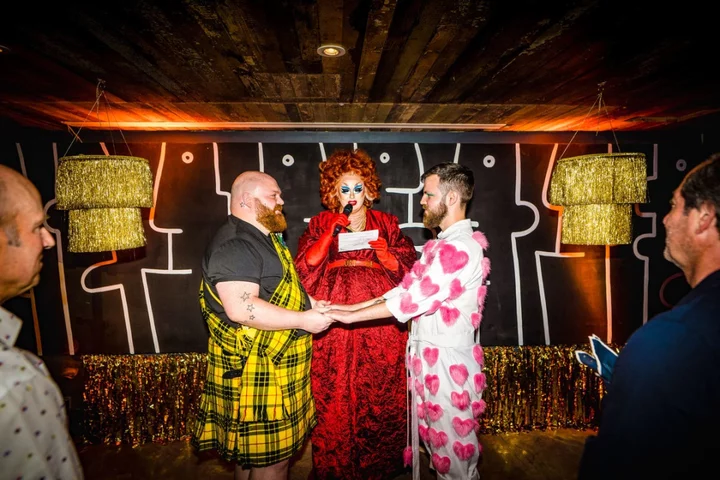
Disability Pride Month: Motor neurone disease diagnosis spurred us on to get married
Getting married wasn’t “on the books” for London couple Craig Pollard and Alex Herd for a long time. But that changed when Alex got diagnosed with motor neurone disease (MND) in 2021, aged 30. “We decided to get married as a bit of a consequence of Alex’s diagnosis,” explains Pollard, 35. “It wasn’t something that was on the books for us before, especially as being gay, marriage wasn’t available to us when we were younger, so wasn’t necessarily something we’d aspired to. “But then thinking about the legacy we wanted and how much time we had together, we saw it as a good way of bringing our families together and celebrating something really positive in our life.” MND affects nerves in the brain and spinal cord which send signals to muscles. There is currently no cure, so as muscle loss gets worse over time – affecting movement, speech, swallowing and breathing – it eventually leads to death. It’s uncommon and mostly affects people in their 60s and 70s, although as Herd’s diagnosis shows, MND can occur in younger adults too. The charity Challenging MND, which helps people with MND, has the ‘opportunity to create amazing memories’, funded the couple’s big day last year – a fabulous festival-inspired party officiated by drag queen Just May from RuPaul’s Drag Race UK Season 4. They had already been together for a decade, so the wedding was a “celebration of all the things we’ve enjoyed together over the last 10 years”, Pollard notes (plus “lots of glitter and sparkle – it was perfect”). It was also the last time Herd went a full day without using a wheelchair. “So it was the very last moment we possibly could have done that,” adds Herd, now 32. “And we can look back at that as a really special day.” He first started noticing symptoms in early 2021 – muscle twitching then weakness in his hands and arms, before his legs became increasingly affected. Herd used a manual wheelchair for a while but recently switched to an electric one. “That’s changed my life quite a lot,” says Herd. “While I was in the manual wheelchair and Craig was pushing around, I sort of felt like I didn’t really exist anymore, because everyone would interact with him, and I wasn’t responsible for where I was. But now I’m in control of my movement, I feel like I’m more interacting with people myself.” The diagnosis has been challenging on multiple levels, individually and as a couple. MND doesn’t present with exactly the same patterns for everyone – so there is no guidebook as such, and navigating support services relies on a lot of self-advocating. Things such as specialist physiotherapy and occupational therapy can be helpful, along with home adaptations. “Having MND, you have to get used to things changing,” says Herd. “I mean, I can’t necessarily relate at this point to someone who’s been in their wheelchair for their whole life, but because things keep changing, you can’t really get used to it properly. So it’s very difficult for me to kind of keep hold of my identity.” In a recent survey, Challenging MND found 63% of people living with the MND had felt marginalised or ‘othered’ because of their condition, while 51% felt others see MND as their identity. In addition, 80% said they felt isolated, and 69% worry about being a burden to their family. Feeling ‘othered’ is something Alex found himself thinking about while attending Pride London recently. “It’s almost more like something I’m doing, than something other people are doing – because I’m seeing people doing what I would’ve been doing a year ago, it’s still fairly fresh for me, so I’m still comparing the before and after,” he reflects. “At Pride, lots of people get to see themselves represented in the crowds, and that’s nice. But then I realised how much more of a minority people in wheelchairs are. It made us realise how different our situation is now, our priorities and expectations in general.” Music has been an important way for him to stay connected with his identity. “I’ve been making music for over 10 years, so it’s nice I’m still able to do that. I think as much as possible, people in a situation like this need to try and keep doing the things that made them happy before,” he says. While he can no longer play his guitar, Herd made voice recordings to use an instrument and creates tracks on his computer, using foot pedals as he can no longer click the mouse. Since his diagnosis, he’s actually been finishing a lot more songs. “I have less distractions now!” Herd quips. “But using music as a communication tool, that’s definitely become more important to me.” Challenging MND also supported the couple with a trip to Eurovision – “which was really touching and we made great memories”, says Pollard. They’re also grateful to support from the Motor Neurone Disease Association, who provides a local area liaison, and their local St Christopher’s Hospice has been “really helpful”. These things make a huge difference. “Something I’m very conscious of as an able-bodied person is watching Alex have to come to terms with first of all being disabled, then being visibly disabled, and then being disabled in public – there’s been a lot of different elements we’ve had to really tackle,” Pollard reflects, citing navigating public transport as one of the main everyday challenges. There’s an emotional toll too. “My energy levels are a lot lower than they used to be, and my capacity for stress. I feel like I already have this much higher baseline of anxiety about various things, so it feels much easier to become overwhelmed,” says Herd. “I think the only thing we can really do is just try and focus on the next thing, rather than worrying about everything.” As members of the LGBTQ+ community, there are sometimes other nuances to their experiences. They’ve noticed LGBTQ+ events are doing well with accessibility, but representation can be a more subtle matter. “There’s definitely an element of the community who are very mindful of others and very empathetic, which I think has been where I’ve learned a lot about different people’s experiences in my life,” says Pollard. “But when it comes to the overall society of the community, I think there’s still a large proportion of it based on image, based around being cool and trendy. So it’s quite easy for people with accessible requirements to be kind of ignored in that space.” As for their experiences in public, Craig says: “We have struggled to feel like we can take up space. First of all being LGBT, we often don’t feel that safe in certain spaces, public transport we’ve had trouble on once or twice in the past, so you’re always a bit uneasy. With moving into being more visibly disabled and needing more accessible requirements, that’s something we’ve to discuss and manage.” Thanks to Challenging MND, the couple are banking up the joyful times. “They offered to support our wedding, which was really special, and without them we probably wouldn’t have had it,” says Pollard. “That isn’t just a memory for us, it’s a memory for our families and friends too. It was really special.” Challenging MND aims to support and empower those living with MND to create lasting memories for themselves and their families. To date they’ve granted in excess of £1.1million and supported over 100 families.
2023-07-06 16:22
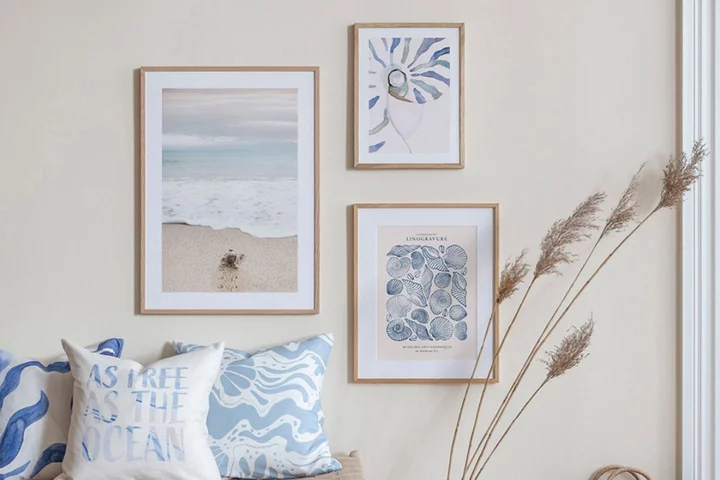
11 ways to channel seaside vibes at home
When you want to make your space feel beach beautiful, creating a coastal feel not only adds character – but everything feels that much more chilled. Inspired by summer’s seaside vibes, sunshine and the relaxing sound of ocean waves, think cool blues, natural elements and decor with some rugged flair… 1. ProCook Melamine Tableware Serving Bowl, £8.99; Dinner Plate, £4.99, Side Plate, £3.99, ProCook Summer salads will love this Mediterranean-inspired tableware, which pair well with seashells scattered along your tablescape. 2. Seaview Organic Cotton Table Runner, £45, XV Stripes This nautical print is tailor-made for seafood appetisers. 3. Blue Stripe Tufted Seat Pads, £15 each (was £25), The White Company Whether you’re perching on a patio seat wall or revamping your garden furniture, these trendy tufted seat pads will cushion you in style. 4. Flock of Seagulls Wall Art, £140, The Coastal Lifestyle Company This coastal inspired wall art with white metal seagulls brings home the sound of gulls, crashing waves and thoughts of clifftop walks. 5. Eat Drink Relax Napkins – Set of 4, £19.60 (was £28) rest of items from a selection, The White Company When you want to say it with words, these embroidered napkins make a stylish statement. 6. FlipFlop Beach Bag, £40, Basket Basket A great styling tool, raffia baskets can be hung from hooks – and they always look chic when placed nonchalantly around the house. 7. Desenio The Summer Coast Gallery Wall: 3 Posters, 3 Frames, £109.14, (was £138.65), Desenio When it’s time to settle down with a sundowner, these posters are right on point with their mood-boosting images to inspire a Riviera lifestyle. 8. White Conch Shell Vase, £24, Bon Bon Fistral Conch vases are particularly trendy right now, and this one is especially fetching with its matt white finish. Fresh or faux white flowers – such as creamy-white gardenias – will up its fabulousness. 9. St Eval Scented Coastal Collection: Tin Candles in Sea Salt, Samphire & Sage and Sea Mist, £13.85 each, St Eval A scented candle will bring you to the Cornish coast and the therapeutic effects of the sea. 10. Coral Wall Art: Marine Blue Coral Art Prints, Unframed, from £18 each, Beach House Art Looking to create a beautiful backdrop with coral and marine blues? These eye-catching prints will make a modish addition to any scheme. 11. Beach Text Cushion, £21, The Coastal Lifestyle Company Whether it’s a waterfront property or urban living, this denim-look scatter cushion will elevate any space.
2023-07-06 15:47

One in four adults in UK have never boiled an egg, survey reveals
More than a quarter of UK adults have never boiled an egg and do not know how to, fewer than a fifth have made a salad dressing and just 45 per cent have baked a Victoria sponge cake, according to a report by Waitrose. While more than a third of people (35 per cent) rate themselves as ‘very good’ or ‘excellent cooks’, some 27 per cent have never boiled an egg, a survey for the supermarket’s annual Cooking Report found. Nearly two-fifths (39 per cent) wish they could spend more time in the kitchen than they actually do, while one-fifth (20 per cent) say they are entertaining more at home due to the cost-of-living crisis – although 34 per cent now think the term ‘dinner party’ is old fashioned. Four in 10 (40 per cent) are happy to choose cheaper cuts of meat and more affordable ingredients to economise when entertaining and seven per cent will ask friends to bring a dish or course. Meanwhile, despite the soaring popularity of air fryers, microwaves have topped a list of 24 kitchen gadgets that most adults said they could not live without. Almost three times as many people said they could not live without their microwave as those who said the same about air fryers, at 32 per cent and 12 per cent respectively. Waitrose said searches for ‘microwave meals’ were up 71 per cent on waitrose.com compared with the same time last year, while sales of microwaves were up 13 per cent at John Lewis. Martyn Lee, executive chef for Waitrose, said: “Food is a daily joy and the cost-of-living crisis has hastened a change in how we cook. “For too long we’ve been looking down on microwaves. You can do so much more in them than heat a cup of coffee. I make a great sponge in mine. I think it’s time to remember the enjoyment we get from the anticipation of their pinging. “When you reheat a stew, or a slice of lasagne in your microwave after the flavours have had time to develop, you enjoy what’s known as the sixth taste sensation ‘kokumi’ – which is lesser known than the other five tastes – sweet, salty, sour, bitter and umami.” The survey also found 46 per cent of people ignore the sell-by dates on packaging, 38 per cent use the ‘five-second rule’ for picking up food that has dropped on the floor, and 16 per cent are happy to scrape mould off food to eat or cook with it. One-third get their ideas on what to cook from TV programmes and five per cent have turned to Chat GPT for recipe inspiration. OnePoll surveyed 4,000 UK adults between 10-16 May and 24-30 May. Read More The dish that defines me: Eddie Huang’s Taiwanese beef noodle soup Woman exits plane after tirade about passenger who is ‘not real’: ‘Final Destination vibes’ Fans mistake Jennifer Garner and Ben Affleck’s daughter Violet, 17, for her mother in new photos Charity boss speaks out over ‘traumatic’ encounter with royal aide Ukraine war’s heaviest fight rages in east - follow live
2023-07-06 15:28

China Requested Japan Allow Visa Free Entry, Business Group Says
China’s government requested that both Japan and the mainland allow visa free entry to the other nation’s citizens
2023-07-06 14:20
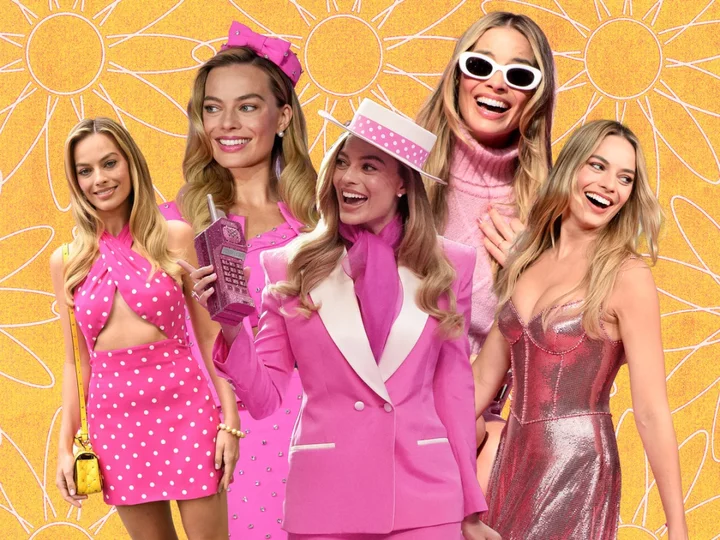
The Barbie press tour has finally rescued Margot Robbie’s red carpet reputation
There are still three weeks to go before anyone gets to actually see Greta Gerwig’s Barbie movie, but it’s already completely monopolised pop culture, from music to fashion to furniture. Google “Barbiecore” and you’ll find the film’s pink-plastic aesthetic infiltrating everything you can imagine, with TikTok clips offering detailed outfit suggestions to viral Twitter threads praising individual looks from the film’s characters. But nothing is getting quite as much attention as Barbie herself. Or, more specifically, the red carpet wardrobe of the actor playing her. Across social media, Margot Robbie has been the subject of endless posts, threads and reels as a result of her chosen ensembles. “Margot Robbie had the chance to do the greatest fashion press tour ever and lord did she take it,” reads one tweet. “Margot Robbie just absolutely slaying all her Barbie press tour looks,” adds another. Meanwhile, British Vogue recently described her as an “unstoppable fashion force”. In typical Hollywood, none of this would be particularly remarkable. Robbie is, after all, an A-list star with an entire entourage of people whose job it is to make sure she looks her best all of the time. The fact that she keeps knocking it out of the park on the Barbie press tour, then, should just be par for the course. But, for Robbie, this carries special significance. Rewind just a few months, and Robbie’s red carpet presence had become something of a political issue. In January, social media was alight with derision for her red carpet wardrobe, mostly due to her long-standing partnership with Chanel. According to Robbie’s fans, the actor’s sense of personal style had been neutered by the luxury Franch conglomerates, with many insisting – albeit without any real evidence – that she was being forced into wearing garments she didn’t actually like. Celebrity stylist Elliot Garnaut labelled Robbie the “worst-dressed” celebrity in Hollywood, adding that someone at Chanel “obviously hates her”. Of course, nobody knew how true or false such claims were. But fans noticed a marked difference in Robbie’s demeanour whenever she stepped out in a designer ensemble that wasn’t Chanel. There was an entire Bottega Veneta phase, for example, where photos of the actor went viral alongside speculation that she was entering her “new fashion era”, finally unshackled from Chanel’s chains. What all of this taught us was that people quite clearly care quite a lot about what Robbie wears. Now it seems they care more than ever. The actor truly hasn’t missed a beat with her press tour wardrobe, tapping into cult vintage looks and recreating actual Barbie doll outfits. As is expected, there is a lot of pink. But it’s not just happening on the red carpet. Remember the iconic tweed blazer originally worn by Claudia Schiffer on the spring/summer Chanel 1996 runway? Robbie was spotted wearing it with jeans and a white crop top when she landed at Sydney airport last month. Her luggage was also pink, naturally. Another Chanel moment came via a sunshine-yellow tweed suit that looked like it had been plucked straight out of Cher Horowitz’s wardrobe. Speaking of co-ords, we’ve seen plenty. There was the pink gingham Prada set Robbie wore to CinemaCon 2023, and the bespoke Bottega Veneta pleated skirt and crop top that the label made especially for the press tour (the exact shade of pink matches that of Barbie’s car). Elsewhere, we’ve seen Robbie wearing the iconic pink polo neck and metallic skirt by Versace from its autumn/winter 1994 collection – fashion fans will remember photos of Kate Moss wearing this on the runway. She paired the look with white platform sandals and lilac socks: a perfect way to accessorise like a doll. Another standout vintage Versace look from the same collection came at a Barbie event in Sydney, where the star wore a pink sequin minidress complete with a corseted bodice. But the undisputed highlight has been the moments in which Robbie directly references Barbie herself, with looks taken from 1950s dolls. At a press conference in Seoul, Robbie dressed in a pink sparkling skirt suit covered in crystal studs, complete with a heart-shaped bag and a pillbox hat. Then there was the “day to night” doll look from 1985 that Robbie recreated – courtesy of Versace – in a pink pencil skirt suit with white lapels and matching high heels. The actor referenced another look worn by the same doll later that night, in a tulle Versace dress complete with a sparkling bodysuit. Over in Sydney, we saw the actor don a striped bodycon minidress by Hervé Léger that paid homage to a swimsuit worn by a Barbie doll from 1959. And at a photocall in LA, Robbie wore a pink polka dot cutout dress from Valentino that referenced a similar frock worn by another original Barbie doll. And in a double whammy of references, it was also a remake of a similar gown worn by Karen Mulder on the brand’s spring 1993 runway. All of this has been the work of celebrity styling mastermind Andrew Mukamal, who has worked with everyone from Zoe Kravitz and Billie Eilish to Kieran Culkin and Irina Shayk. “We’re always thinking about risks to take,” Mukami once told Vogue of his long-standing partnership with Kravitz. “We want to make an impact and create iconic moments that people will remember and be drawn to.” It seems he’s taken this exact modus operandi and applied it to Robbie, too. And thank goodness, because Barbie is nothing if not defined by what she wears. In 2023, that might sound reductive. But given Gerwig’s esteemed reputation and what we know about the film so far, we have every reason to believe that fashion, much like everything else, will prove to be an important and meaningful platform in the script. Robbie’s archival wardrobe also marks the latest sign that red carpet fashion is leaning increasingly backwards. The only outfits that matter are those that we’ve seen before. At least, that’s how it seems when you consider the fanfare surrounding celebrities any time they get their hands on a cult vintage look. This taps into the sartorial zeitgeist of shunning fast fashion in favour of sustainable alternatives. But it also suggests a slightly less exciting prospect that fashion is running out of new ideas. Even at the Met Gala, fashion’s greatest global stage, some of the most talked-about looks were vintage. Is this the death knell for originality? And what of Robbie’s own style progression? Once the Barbie press tour is over, will she go back to grinning weakly in Chanel pastels? Nodding to fashion history is a worthwhile cause. But it’s something the Queen of fashion herself, Vogue’s Anna Wintour, famously despises: “Fashion’s not about looking back. It’s always about looking forward,” she once said. Try as she might, Robbie can’t dress like a doll for the rest of her life. So perhaps this marks the start of a new costume-orientated era for the actor, one where fashion will be taken more seriously than ever before. Funnily enough, it’s a modus operandi that puts her more in sync with Barbie than anyone could have anticipated. ‘Barbie’ is in cinemas from 21 July Read More Hostage to fashion: Margot Robbie’s Chanel problem speaks to a wider red carpet crisis Walk this way... but not like that: How men’s walks became sexualised Plastic fantastic: Barbiecore is the fashion movement turning hyper-femininity on its head
2023-07-06 13:56
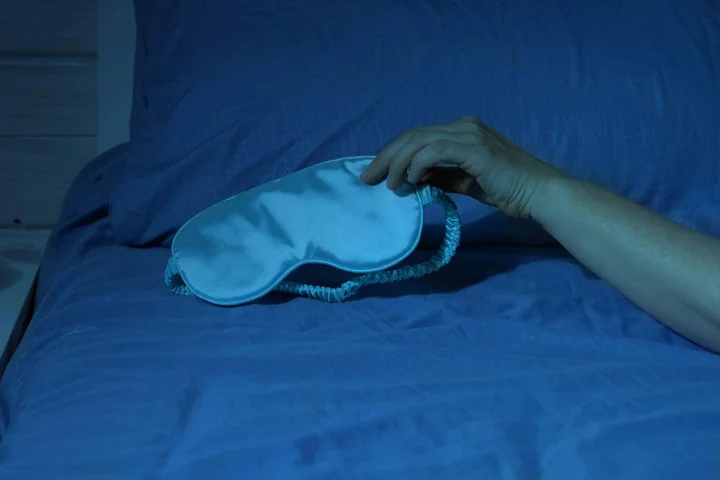
Middle-aged people who skip on sleep won’t see cognitive benefits of exercise
Middle-aged people not getting enough sleep are less likely to see the benefits of exercise when comes to protecting against decline in skills such as memory and thinking, scientists have said. Researchers from University College London (UCL) found that those in their 50s and 60s who performed regular physical activities but slept less than six hours a night had a faster decline in these skills overall. The team found that after a decade, their cognitive functions – such as attention, memory and learning – were the same as those who did less physical activity. The researchers said their study, published in journal The Lancet Healthy Longevity, highlights the need for sleep to protect against cognitive decline as people get older. Lead author Dr Mikaela Bloomberg, of UCL Institute of Epidemiology & Health Care, said: “Our study suggests that getting sufficient sleep may be required for us to get the full cognitive benefits of physical activity. “It shows how important it is to consider sleep and physical activity together when thinking about cognitive health. “Previous studies examining how sleep and physical activity might combine to affect cognitive function have primarily been cross-sectional – only focusing on a snapshot in time – and we were surprised that regular physical activity may not always be sufficient to counter the long-term effects of lack of sleep on cognitive health.” The World Health Organisation already identifies physical activity as a way to maintain cognitive function, but interventions should also consider sleep habits to maximise long-term benefits for cognitive health Prof Andrew Steptoe For the study, the team looked at data from the English Longitudinal Study of Ageing (Elsa) from nearly 9,000 people aged 50 and over. Their cognitive function was assessed over a period of 10 years with various memory and verbal fluency tests. Questionnaires were also used to assess how long they slept and whether this was less or more than six hours. People were also asked about their levels of physical activity. At the start of the study, those who were more physically active also had better cognitive function regardless of how long they slept. However, this changed over the 10-year period, with more physically active short sleepers in their 50s and 60s experiencing more rapid cognitive decline, the researchers said. But for people aged 70 and over, the benefits of exercise on cognitive function were maintained, despite short sleep, the team added. Co-author professor Andrew Steptoe, of UCL Institute of Epidemiology & Health Care, said: “It is important to identify the factors that can protect cognitive function in middle and later life as they can serve to prolong our cognitively healthy years and, for some people, delay a dementia diagnosis. “The World Health Organisation already identifies physical activity as a way to maintain cognitive function, but interventions should also consider sleep habits to maximise long-term benefits for cognitive health.” Read More 8 best kids’ bunk beds that are fun and functional Nurture your health and wellbeing this season The best holidays to book for August, from beach breaks in Portugal to stays on an Italian lake More travelers get cozy with glamping, even amid high costs People who sleep very late may die earlier due to unhealthy habits, study says
2023-07-06 13:28
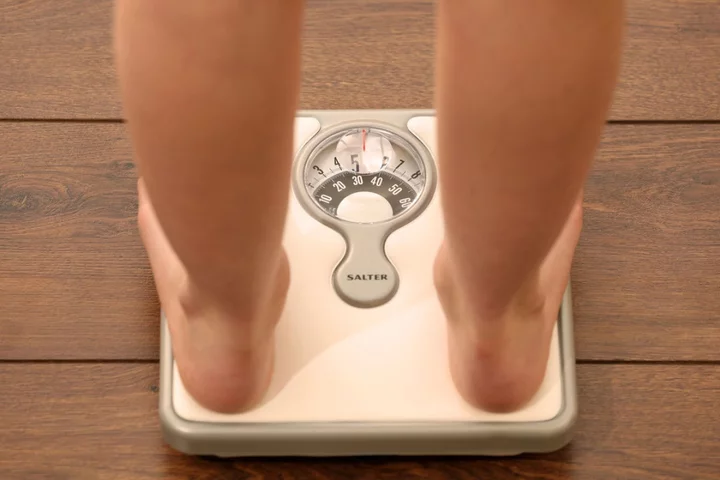
Being overweight ‘linked to 18 cancers’ in under-40s
Being overweight as a young adult can increase the risk of developing 18 cancers – more than have been previously linked with the disease, researchers found. Previous studies have shown that people who are overweight or obese have a heightened risk of a number of different cancers including breast, bowel, kidney and pancreatic. Now excess weight has also been linked to leukaemia, non-Hodgkin lymphoma, and among never-smokers, bladder and head and neck cancers in a large new study. The authors said these cancers have not previously been “considered as obesity-related cancers”. Our findings support public health strategies for cancer prevention focusing on preventing and reducing early overweight and obesity Study authors And that the impact of obesity on cancer is “likely underestimated”. The new study, published in Nature Communications, saw researchers examine data on more than 2.6 million Spanish adults aged 40 and under who were cancer-free in 2009. Researchers examined the body mass index (BMI) scores throughout the lifetime of people involved with the study, saying that previous research investigating the link between weight and cancer has used single BMI scores. The people in the study were tracked for nine years to see whether they developed cancer. Some 225,396 were diagnosed with cancer during the period studied. The Spanish researchers found that those who were overweight or obese in early adulthood – aged 40 and under – appeared to have an increased risk of cancer. Those who were overweight or obese for a longer period also appeared to have a higher risk. Our own evidence shows that maintaining a healthy weight throughout life is one of the most important things people can do to reduce their cancer risk, and early prevention in adulthood is key Dr Heinz Freisling, one of the study’s co-leaders Overall, some 18 cancers were linked to excess weight. The authors wrote: “This study shows that longer duration, greater degree, and younger age of onset of overweight and obesity during early adulthood are positively associated with risk of 18 cancers, including leukaemia, non-Hodgkin lymphoma, and among never-smokers, head and neck, and bladder cancers which are not yet considered as obesity-related cancers in the literature. “Our findings seem to indicate that longer exposures to overweight and obesity (with or without accounting for the degree of overweight and obesity), as well as developing overweight and obesity at younger ages in early adulthood might increase cancer risk. “Our findings support public health strategies for cancer prevention focusing on preventing and reducing early overweight and obesity.” Dr Heinz Freisling, from the International Agency for Research on Cancer and one of the study’s co-leaders, said: “The results of our study support a re-evaluation of the cancer burden associated with overweight and obesity, which currently is likely underestimated.” Commenting on the study, Dr Panagiota Mitrou, director of research, policy and innovation at World Cancer Research Fund, said: “This large study has future public health implications since additional cancers, such as leukaemia and non-Hodgkin lymphoma, have been shown to be linked with overweight and obesity. “Our own evidence shows that maintaining a healthy weight throughout life is one of the most important things people can do to reduce their cancer risk, and early prevention in adulthood is key.” Read More Study says drinking water from nearly half of US faucets contains potentially harmful chemicals Up to 10,000 Britons could take part in cancer vaccine trials People with signs of bowel cancer should be offered a £5 ‘poo test’ before invasive bowel investigations Nurture your health and wellbeing this season What diet drinks don’t have aspartame in them?
2023-07-06 13:21

JetBlue Won’t Appeal DOJ Ruling Against American Airlines Alliance
JetBlue Airways Corp. won’t appeal a federal judge’s ruling that declared its alliance with American Airlines Group Inc.
2023-07-06 04:59
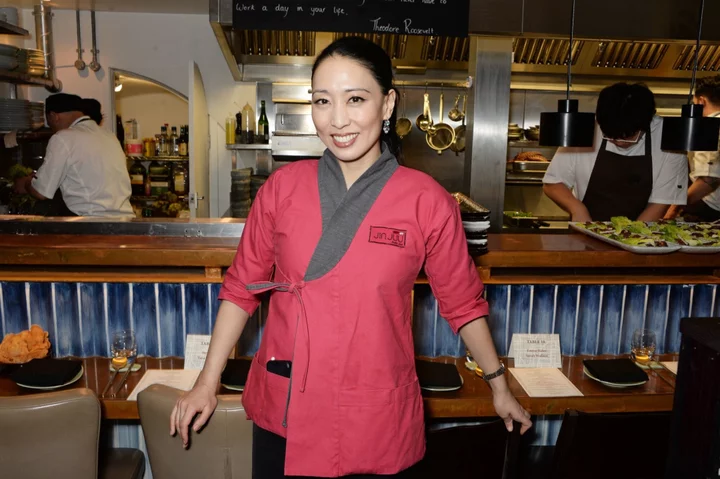
How a Morgan Stanley Derivatives Salesperson Became a Celebrity Chef
Judy Joo says she used to read mostly about financial markets as she shows me around her quick-service
2023-07-06 00:21
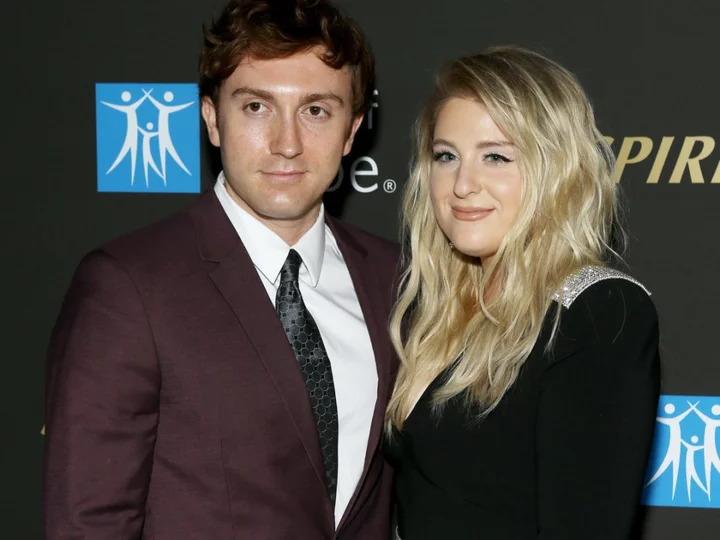
Meghan Trainor and husband Daryl Sabara welcome second child with unique name
Meghan Trainor and her husband Daryl Sabara have welcomed their second child, a son named Barry Bruce. Trainor, 29, and Sabara, 31, shared a joint post on Instagram on Tuesday to announce the baby news. In addition to their newborn, the pair are also parents to a two-year-old son, Riley. In the caption, Trainor revealed when the baby was born and formally introduced him. “On July 1st (our seven-year anniversary of our first date) we welcomed Barry Bruce Trainor into the world,” she wrote. She went on to share that she welcomed the infant via Caesarean section before thanking her medical team for their support. “He was a big boy at 8lbs 7oz...and sideways (transverse), but we had an amazing, successful C-section, and I finally got my skin to skin time!” the “Mother” singer wrote. “Thank you to all of the incredible doctors and nurses who took such great care of us.” The Instagram post included multiple photos of the newborn with his mother and father, along with snaps of the singer in a hospital bed. In the comments, fans and celebrities celebrated the baby news, with Paris Hilton writing: “Congratulations sis! So happy for you!” “Go Mama!! And welcome to the party, Barry!! What a lucky dude!” Mandy Moore added, while Gina Rodriguez wrote: “He is perfect!!! Congrats sweet superhero mama!!!” In January, Trainor revealed that she was pregnant with her second child when she confirmed the news in an interview with People. At the time, she said she was “ just so grateful [that she could] get pregnant”. “I’m crushing it. This is amazing,” she said in a statement to the magazine at the time. “This is my dream. I’m halfway there - I want four kids!” She went on to reflect on how her second pregnancy was different from her first. “It’s like a real pregnancy,” she said. “The first one was like make-believe. I had no symptoms with Riley to the point where I was like: ‘We need to go to the doctor. There’s nothing in me.’” Since then, Trainor has also opened up about how her first experience with childbirth impacted her mental health. In April, she revealed that she struggled with post traumatic stress disorder (PTSD) after welcoming Riley via Caesarean section. During an interview with Today, she said that after she’d had her child and returned from the hospital, there were times she felt like she was still in the delivery room. “I was like: ‘It’s so weird,’ to my therapist and my doctors,” the “Made You Look” singer recalled. “I was like: ‘It’s like I’m back in my room.’ At nighttime, when the pain would kick in. I was like: ‘Daryl, I’m still on the table, I know she’s inside me.’” Trainor said that the feeling, which went on for “months,” ultimately led to her diagnosis. “They were like: ‘So we have to work through this. That’s a sign of PTSD,’” she recalled. “And I was like: ‘Oh, I didn’t know that.’” PTSD is “a mental health condition that’s triggered by a terrifying event through either experiencing it or witnessing,” as noted by the Mayo Clinic. According to the Postpartum Support International, approximately “nine per cent of women” experience PTSD after childbirth Read More Meghan Trainor reveals the symptom that led to her postpartum PTSD diagnosis Meghan Trainor’s ‘big boy’ sex story with her husband is not what you think Meghan Trainor apologises for ‘careless’ teacher remark: ‘I’m so so sorry’ How to go sober if your partner still drinks The shared symptoms of menopause and young onset dementia Fiona Phillips Alzheimer’s diagnosis at 62: 7 ways to reduce your risk
2023-07-05 23:27
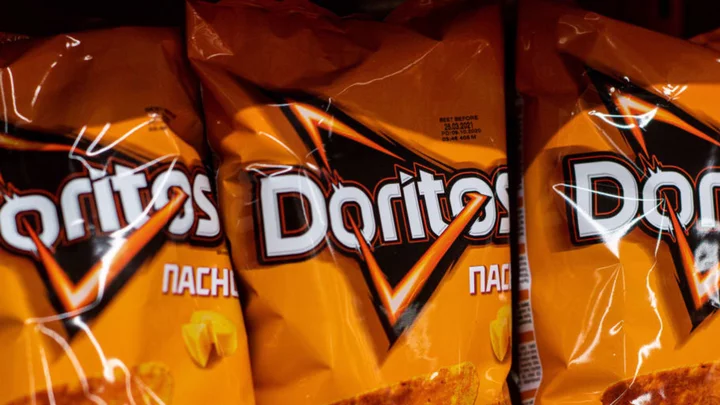
Do Mexican Doritos Taste Different Than the American Version?
Doritos apparently taste different in Mexico than they do in the U.S., and many customers prefer the version sold south of the border.
2023-07-05 23:16
